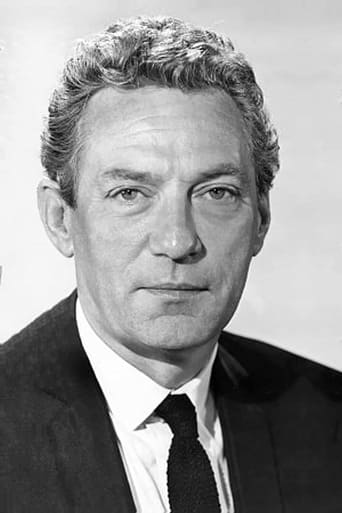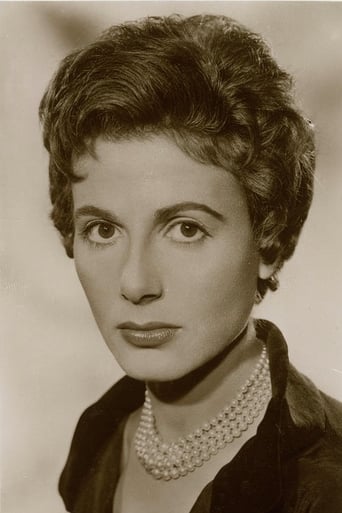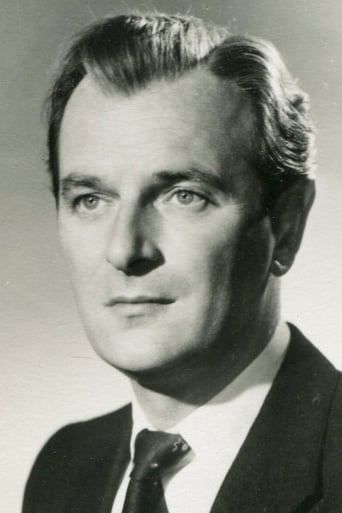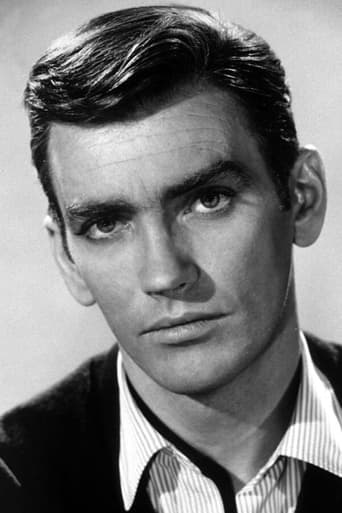Robert J. Maxwell
There have been several renditions of the trials (and tribulations) of Oscar Wilde but this is the best. "Oscar Wilde," starring Robert Morley, had appeared two years earlier and was more typical of the way films had to stomp history into a Procrustean bed in order to fit the time slot and please the audience. As Wilde, Morley isn't a pouf but a sensitive soul. He's put on trial and spouts all the apothegms of Wilde's characters as if they were appearing for the first time, improvised on the spot.This version, "The Trials of Oscar Wilde", is longer, more demanding, more historically true, and generally superior. It's informative too. There wasn't "a" trial of Oscar Wilde; there were three trials all in all, one in which he was the plaintiff, one in which the crown prosecuted him and ended in a mistrial, and a third in which he was convicted and sent to Reading gaol ("jail", folks) for two years, during which he lost his wealth, his social status, and his family, and went into exile in Paris.It's not a comedy. At the height of his powers, Wilde has a pretty wife and two children whom he loves. He's also having an affair with the handsome young Lord Alfred Douglas ("Bosie"), son of the Marquis of Queensberry. Whether the affair is Platonic or assumes more physical dimensions, we never find out. Nor in the end does it matter.We don't get to hear the evidence brought against Wilde by four or five scalawags whose integrity is in doubt. Presumably their testimony involved sodomy, delicately expressed. But their stories are tainted enough that we can conclude Wilde was convicted because he LOOKED and ACTED queer. He was tried in the press and was guilty. This was in 1893 in Victoria's notoriously prudent England, but it happens all the time. We're quick to leap on the suggestion of guilt in popular figures. America has just done it now in the case of a once popular entertainer, Bill Cosby. "Schadenfreude" was Freud's word for it, the pleasure taken in seeing others suffer.Most of the characters are given two dimensions except perhaps for the Marquis of Queensberry, the reliable Lionel Jeffries, who is a flat-out, half-deranged sadist. The proximate cause of Wilde's trials, the extraordinarily handsome Bosie, John Fraser, is a moral imbecile, a psychopath, but like other psychopaths he's good at scanning others and generating sympathy for himself. All that's keeping him from being thoroughly "evil" is a German umlaut.Two events are understandably left out. One is Wilde's experience in prison. He did hard time in the sense of back-busting physical labor. Yet he managed to produce one of his better-known poems, "The Ballad of Reading Gaol," from which we get lines like: "Yet each man kills the things he loves" Another absentee is Wilde's death in a modest Paris lodging house, a place he loathed. A visitor found him dying in his bed, staring at the wall. And Wilde said, "Either this wallpaper has to go or I do." He's buried in Père Lachaise Cemetery along with Chopin, Molière, Jim Morrison, and (most aptly) Helois and Abelarde.I found the acting, the writing, and the direction all pretty much above what I'd expected. As Wilde, Peter Finch has to be very careful, as if walking a tightrope. He never acts effeminate except in dire situations, threatened by a knife or pummeled by unwanted visitors. As Bosie, Fraser is a perfectly spoiled and selfish brat. James Mason makes a brief appearance as the court's prosecutor, the guy who was Wilde's classmate at Oxford. ("No doubt he'll treat me with all the bitterness of an old friend.") It's hard to recall a better written summary of the defense than that given by Nigel Patrick as Wilde's barrister and it's difficult to beat Wilde's definition of "the love that dare not speak its name" while on the stand.It's a superior movie.
bkoganbing
Peter Finch gives a top drawer performance in the title role of the Trials of Oscar Wilde. It's the story of a man who was a celebrity raconteur and playwright and his fall from grace because of Victorian mores about homosexuality.Today a man like Wilde would not be compelled as Victorian society did compel homosexuals to marry and have children and deny to the world who they were and how they love. Just think that a century later after the controversy surrounding Wilde, we are discussing gay marriage and it's being legalized in many countries. Wouldn't it have all been simpler if Oscar had been allowed to marry Bosy.When the film opens Wilde is already a successful author of many plays and stories and maybe the most quoted man of wit in his time. He's married with two children, but he's got a side life as a gay man. He's got to take his partners where he finds them, a lot of street kids for the most part. And then he falls head over heels for Lord Alfred Douglas played by John Fraser. Fraser is the son of the Marquis of Queensbury, the same guy who thought up the rules for prize fighting. He's a rough and crude man played with relish by Lionel Jeffries. Of course the thought of a gay son is an abomination to him. Can't be that young Bosy is gay, it's that Wilde guy he's hanging out with.Queensbury calls Wilde a "sodomite" and Wilde foolishly decides to sue him for libel. And then the trials take place, first the civil suit and then the criminal trial because sodomy was indeed a criminal offense back in the day.I often wonder why the real Wilde did not just deal with Queensbury in one of his plays. In real life and in the film Queensbury was a boorish lout who could have so easily been caricatured and laughed out of relevancy. Queensbury retained as his attorney Edward Carson, maybe the best barrister of his day. Later on he led the Ulster contingent in Parliamant and was probably the man most responsible for those six counties of Northern Ireland remaining in the United Kingdom.Let's just say that Oscar Wilde uttered one witticism too many during his time on the witness stand and James Mason who gives a great performance as Carson just moves in for the kill. With an international gay movement in full swing now Oscar Wilde and his story may seem quaint to some, but it is relevant today to show that it wasn't that long ago that being who you were was a crime. And a reminder of where gay/lesbian/bi-sexual/transgender folks will be if our hard won rights even as incomplete as they are yet are ever allowed to recede.
kyle_furr
I had heard of Oscar Wilde before but i didn't know who he was. I had seen the 1945 version of The picture of dorion Gray but i didn't know he wrote it. This movie has Wilde being put on trial for having homosexual relations, there's more to it but I'm too lazy to put it down. Peter Finch does a good job and James Mason is the main reason i wanted this, but i didn't know he was basically only in one long scene as the defense attorney.
OscarBewildered
I can't find fault with one thing. My favourite film. I love Wilde, and this really just captured everything. I found this accurate, witty and touching. The court case in particular moved me, as did Finch's portrayal of the man himself. This is excellent and has stood the test of time.





